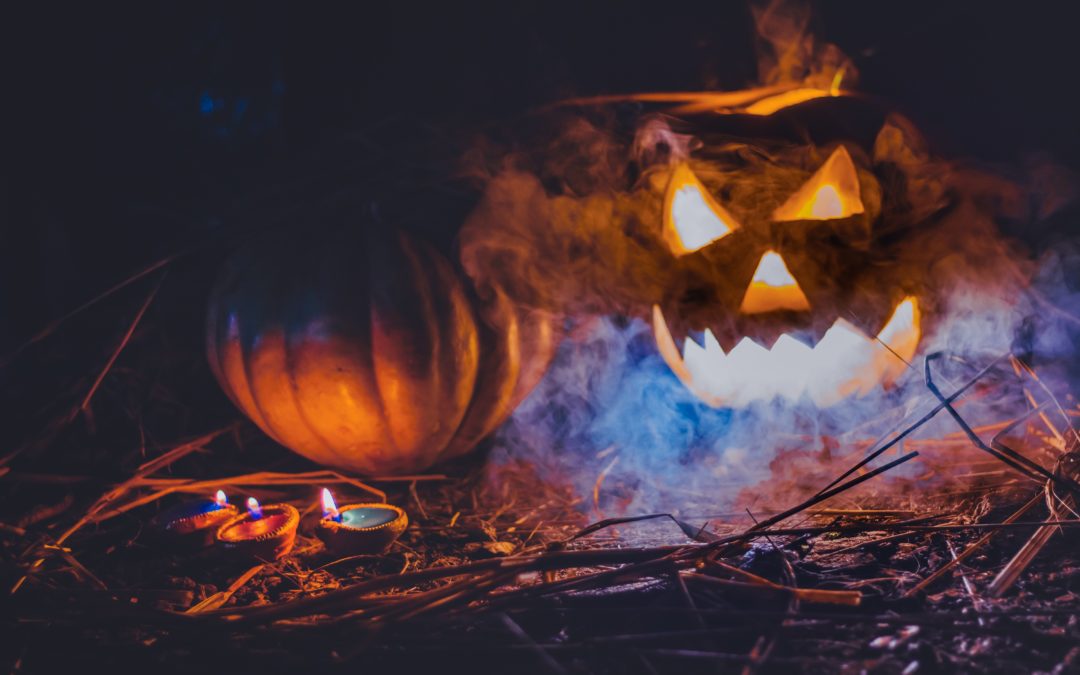Jack o’ lanterns and costumes and candy, oh my. For most people, Halloween is a lighthearted holiday with a dash of non-threatening fright. However, for those diagnosed with post-traumatic stress disorder (PTSD), there is nothing non-threatening about the holiday. PTSD triggers abound in haunted houses, costume choices, and other spooky surprises of the season.
Understanding what triggers panic attacks during Halloween can help you avoid reliving a past trauma, or support a loved one who is battling demons from their past.
Here are the top trauma triggers to be on the lookout for this Halloween:
- Haunted houses. Haunted houses are filled with common PTSD triggers. Ghosts and goblins pop out unexpectedly at every turn, and the audio/visual effects—strobe lighting, loud noises, and other ghoulish sound effects—are major trauma triggers for those diagnosed with PTSD.
- Graphic costumes. While it’s understandable that costumes featuring realistic-looking scars, wounds, and weapons would be PTSD triggers, even a seemingly-wholesome costume could remind someone of a deceased loved one from their past, or bring them back to the scene of a tragic event.
- Horror movies. Watching Friday the 13th or The Shining may be a Halloween tradition for many, but for those struggling with PTSD, movies like these can cause their symptoms to kick into overdrive. It’s easy enough to make the decision not to watch one of these movies, but it can be difficult to avoid commercials advertising these movies while flipping through the channels.
- Decorations and special effects. Fake spider webs and coffins, body parts, crime scene tape, fog machines, tombstones and strobe lights are all potentially triggering decorations for someone with PTSD.
To prevent these PTSD triggers from getting the best of you, it’s best to verbalize your concerns to the people who care about you most. Let your support system know that you are worried about seasonal trauma triggers. Avoiding drugs and alcohol can also prevent Halloween triggers from getting through to you. Taking that a step further, practicing mindfulness through breath work or meditation can further enhance your brain’s ability to block out stimuli that may trigger your PTSD symptoms.
Contact Ketamine Greater Boston
If you struggle with PTSD and find that your daily life is impacted by this mental health disorder, ketamine infusions may help. Contact Ketamine Greater Boston today to learn more about ketamine for PTSD, and discover if you are a candidate.
![]()


Recent Comments